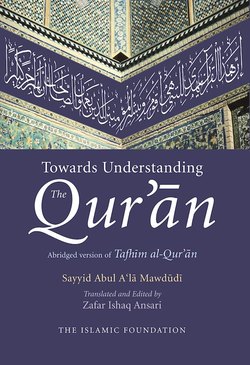Читать книгу Towards Understanding the Qur'an - Sayyid Abul A'la Mawdudi - Страница 208
На сайте Литреса книга снята с продажи.
ОглавлениеAl-Nisa’ 4: 26
Marry them, then, with the leave of their guardians, and give them their bridal-due in a fair manner that they may live in the protection of wedlock rather than be either mere objects of unfettered lust or given to secret love affairs. Then if they become guilty of immoral conduct after they have entered into wedlock, they shall be liable to half the penalty to which free women (muhsanat) are liable.31 This relaxation is for those of you who fear falling into sin by remaining unmarried. But if you persevere, it is better for you. Allah is All-Forgiving, All-Compassionate.
(26) Allah wants to make all this clear to you, and to guide you to the ways which the righteous have followed in the past; ▶
31 In verses 24-5, the term muhsanat (protected women) is used in two different meanings. First, it is used in the sense of “married women”, that is, those who enjoy the protection of their husbands. Second, it is used in the sense of “women belonging to families”, i.e. those who enjoy the protection of their families even though they may not be married. In the verse under discussion, the word muhsanat is used in the latter sense, i.e. in the sense of women who enjoy the protection of their families as opposed to slave-girls. At the same time, the word is also used in the first meaning when slave-girls have acquired the protection accorded by the contract of marriage (fa idhda uhsinna). In that case they will be liable to the punishment laid down in this verse if they are guilty of unlawful sexual intercourse.
159
